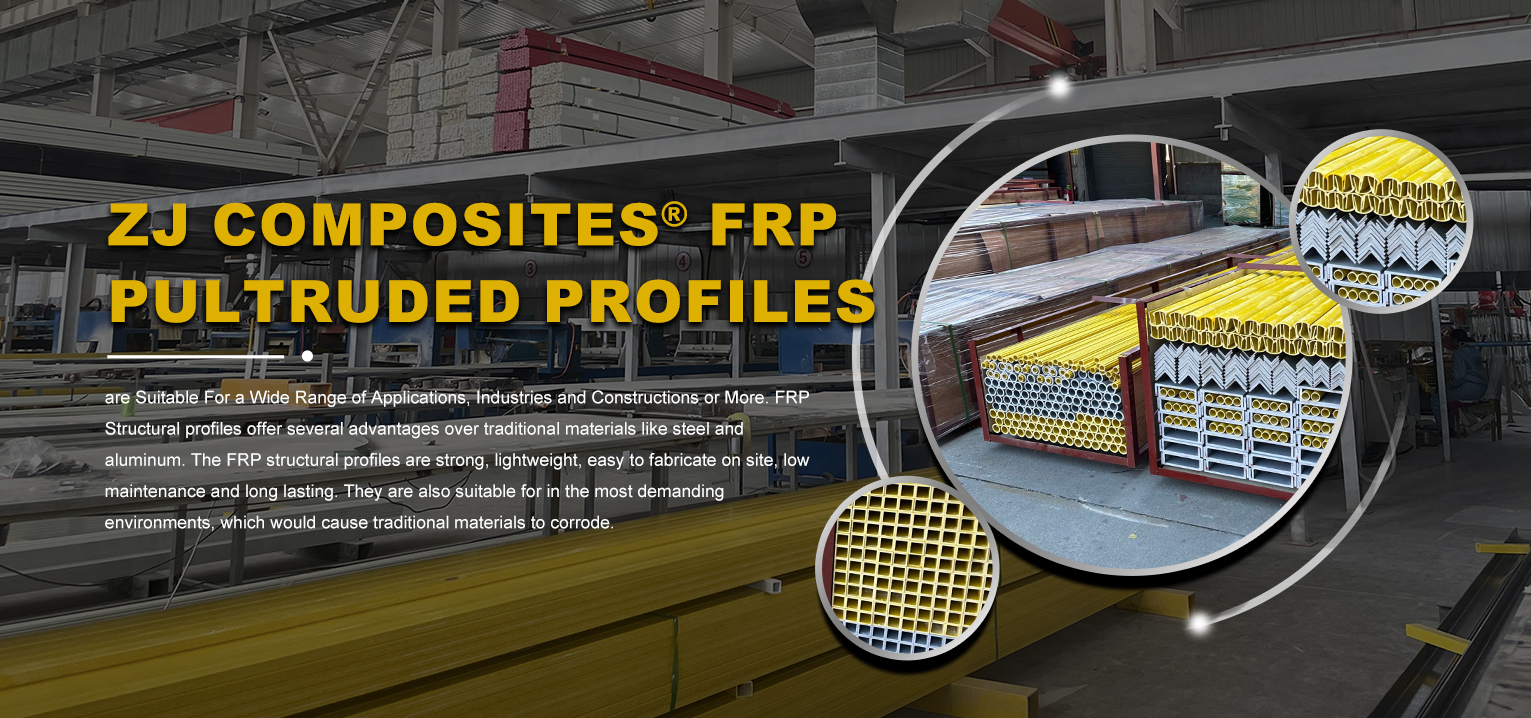loading...
- No. 9, Xingyuan South Street, Dongwaihuan Road, Zaoqiang County, Hengshui, Hebei, China
- admin@zjcomposites.com
- +86 15097380338
- Welcome to visit our website!
Fiber Reinforced Polymer Grating Panels for Enhanced Structural Applications
Understanding FRP Grating Panels A Lightweight Solution for Industrial Applications
Fiber Reinforced Polymer (FRP) grating panels have emerged as a preferred choice in various industrial and commercial applications due to their unique properties and advantages. As construction and engineering fields evolve, the demand for materials that offer strong performance, lightweight characteristics, and corrosion resistance has led to the increased utilization of FRP grating panels. This article delves into the key features, benefits, applications, and future prospects of FRP grating panels.
What are FRP Grating Panels?
FRP grating panels are composite materials made of a polymer matrix combined with fiberglass reinforcement. The resulting structure is inherently strong, lightweight, and resistant to various environmental factors such as moisture, chemicals, and UV radiation. The production of FRP grating involves a process of pultrusion, where the fiberglass strands are pulled through a resin bath and cured to form a solid, durable product. These panels can be designed in various thicknesses, colors, and styles to meet specific engineering requirements.
Key Features of FRP Grating Panels
1. Corrosion Resistance One of the most significant advantages of FRP grating panels is their durability in harsh environments. Unlike traditional materials such as steel or wood, FRP panels do not rust or corrode, making them ideal for chemical processing, wastewater treatment, and marine applications.
2. Lightweight FRP grating is significantly lighter than metal alternatives, making it easier to handle and install. This reduces transportation costs and the need for heavy machinery during installation, leading to more flexible project management.
3. High Load Capacity Despite their lightweight nature, FRP grating panels possess high load-bearing capabilities. They can support substantial weights, making them suitable for pedestrian walkways, industrial flooring, and platforms.
4. Fire Resistance Many FRP grating products are designed to be non-combustible and meet stringent fire codes, ensuring safety in applications where fire risk is a concern.
5. Low Maintenance With their inherent properties, FRP panels require minimal maintenance compared to traditional materials. This feature not only extends the lifespan of installations but also reduces long-term operational costs.
Applications of FRP Grating Panels
frp grating panels

FRP grating panels find applications across a broad range of industries, including
- Industrial Facilities Used for flooring, walkways, and platforms in chemical processing plants, oil and gas facilities, and manufacturing environments where safety and hygiene are crucial.
- Water and Wastewater Treatment Their corrosion resistance makes FRP grating ideal for use in treatment plants, where exposure to harsh chemicals is common.
- Marine Environments The lightweight and anti-slip surfaces make FRP grating suitable for docks, piers, and boat houses, where traditional materials may deteriorate over time.
- Construction and Infrastructure FRP panels are used in a variety of applications, including bridges, stairways, and ventilation ducts, owing to their structural integrity and design flexibility.
The Future of FRP Grating Panels
As industries continue to seek sustainable alternatives to traditional materials, the demand for FRP grating panels is expected to grow. Advances in manufacturing technologies are improving the efficiency and sustainability of FRP production, allowing for more environmentally friendly practices. Furthermore, ongoing research into improving the mechanical properties of FRP composites may expand their applications even further.
Moreover, there is a rising trend towards utilizing smart technologies in construction, which could integrate with FRP panels to enhance monitoring and safety in industrial applications. For instance, embedding sensors within the FRP grating could allow for real-time analysis of load-bearing capabilities and environmental conditions.
Conclusion
FRP grating panels offer a lightweight, durable, and versatile solution that meets the demands of modern industrial environments. With their corrosion resistance, low maintenance, and various applications, they stand out as a material of choice for engineers and project managers. As the industry continues to innovate and adapt, FRP grating panels are poised to play a crucial role in future construction and infrastructure projects, driving efficiency and sustainability in diverse applications.
-
The Rise of FRP Profiles: Strong, Lightweight, and Built to LastNewsJul.14,2025
-
SMC Panel Tanks: A Modern Water Storage Solution for All EnvironmentsNewsJul.14,2025
-
GRP Grating: A Modern Solution for Safe and Durable Access SystemsNewsJul.14,2025
-
Galvanized Steel Water Tanks: Durable, Reliable, and Ready for UseNewsJul.14,2025
-
FRP Mini Mesh Grating: The Safer, Smarter Flooring SolutionNewsJul.14,2025
-
Exploring FRP Vessels: Durable Solutions for Modern Fluid HandlingNewsJul.14,2025
-
GRP Structures: The Future of Lightweight, High-Performance EngineeringNewsJun.20,2025
